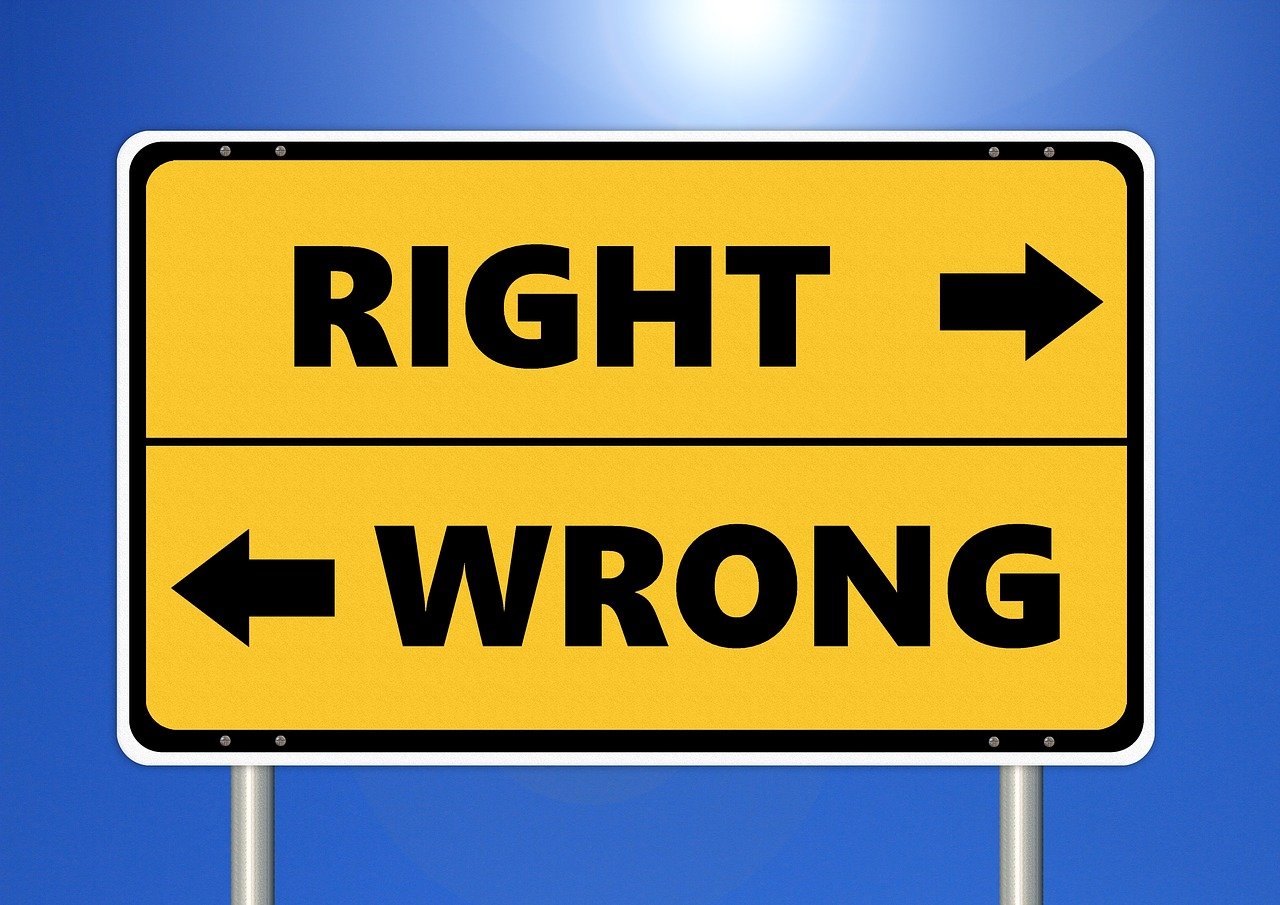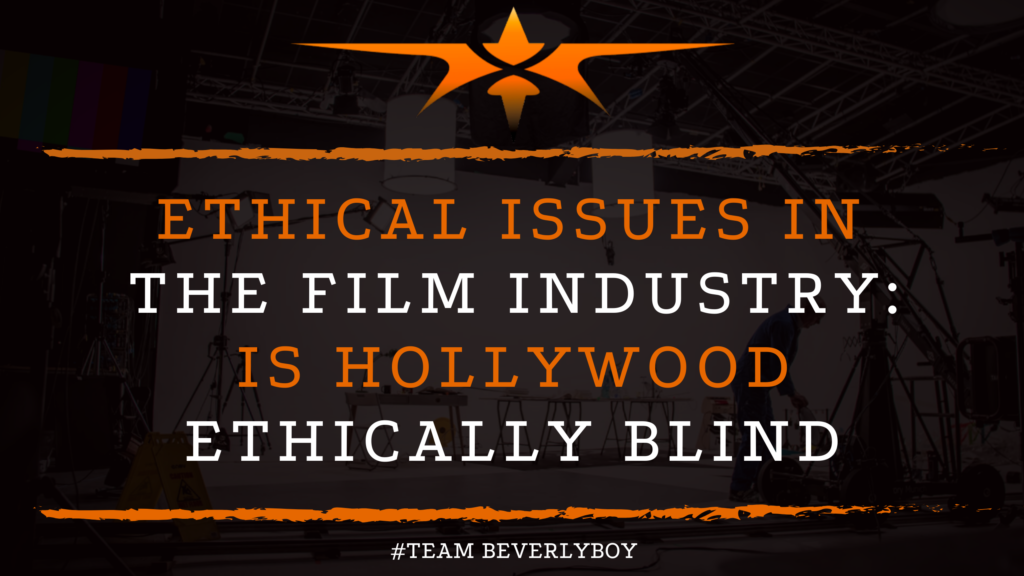Ethical Issues in the Film Industry: Is Hollywood Ethically Blind?
A scriptwriter finishes his script happily announcing the creation as their own, the only problem is? They stole the idea from their friend some time ago. Are they ethically wrong for taking the idea that their friend never executed? An independent film script calls for a scene to take place in a backyard swimming pool. The producer volunteers to have a pool built in their backyard. The construction costs are added to the production budget. Is this a perk of being the producer or is it ethically wrong?

A cinematographer catches a full interview. In which a particular point of view is represented on a touchy subject. But in editing, the interview is adjusted, with just a few alterations made to the final cut, omitting a few lines here, adding in a comment there, and voila!
What was originally stated in the interview, is delivered in a completely different capacity. Touchy subjects are no longer touched on. Is this deliberate alteration to omit the touchiness of a subject ethically wrong. Or just another day in post-production editing?
When it comes to ethical issues in the film industry, some wonder whether Hollywood might be blind to the moral well-being of others. In regards to fairness, honesty and integrity, and having a level of decency and respect for the lives of those around us.
Some might even call the use of the terms “ethical” and “Hollywood” together an oxymoron. But not all filmmakers are ethically questionable. And not all situations in which ethics are questioned in the film industry arise out of desire to commit some wrongdoing.
FOR EXAMPLE
One could argue that it’s easy to make a mistake. To incorrectly edit a piece so that it would appear that a statement was never made or was made in a different way.
The producer that volunteers their home for the pool scene might argue that a pool would need to be built for the scene regardless. So why not have it done at their house? But where do ethics and what’s morally right? And ethical blindness to what’s purely wrong collide?
Although ethical issues in the film industry are quite common. It appears that there are plenty of forward facing citizens that are looking to call out those who make these “decisions” of question.
We’ve actually seen many different cases in which the ethics of a producer, director, or filmmaker in the industry have been questioned publicly. We’ve even seen instances of industry members fined for their “wrongdoings.”
MORAL OBLIGATIONS FOR FILMMAKERS
As we look at ethical issues in the film industry, it’s important to consider the moral obligations of those who produce films. For example, documentary filmmakers have an ethical responsibility to the subjects that they film to prevent harm.
And to portray them in a way that will not result in their being mistreated. While ethical obligations may appear minimal in the production of some films. There are plenty of producers that have strong values and a commitment to what’s ethically correct.
When it comes to crossing ethical lines in the film industry.
WE SEE MANY FILMMAKERS THAT ARE BURDENED WITH THE POTENTIALLY ETHICAL DILEMMAS OF:
- Providing the truth vs. providing a vision of loyalty.
- Engaging in short-term events that can bring pleasure vs. the risk of long-term consequences.
- Providing justice for someone vs. the mercy of another.
- Doing what we know we should vs. doing what we know we want to do.
TOP ETHICAL ISSUES IN FILM
If you’re new to the film industry, you might not be fully aware of the many ethical issues that arise within the day-to-day operation of the industry. In addition to all of the examples that have been provided. Filmmaking can tug at those morally correct.
Drawing even the most ethically confident individual in the wrong direction. Money, and an incredibly competitive environment, have a tendency to do that.
SOME OF THE ETHICAL ISSUES IN THE FILM INDUSTRY THAT ARE MOST FREQUENTLY FACED INCLUDE:
- Showing a lack of humility in the way shots are juxtaposed.
- Demeaning an interviewee by allowing fewer shots or shorter shots of one versus another.
- Using the camera pan or tilt to create an audience sense of distrust or of belittlement of a character.
- Editing an interview to remove comments or add comments that change the audience’s perception of a topic.
- Diminishing dramatic impact of a scene by eliminating certain parts or adding in edits.
- Allowing a subject to embarrass himself by keeping the shot long as he rambles an answer that has little value.
- Reassembling events in a way that is aesthetically incorrect and causes the audience to question what they see.
SPECIAL TREATMENT
What’s fair, and to whom you are fair in film can really be perceived in so many different ways. If you edit a shot, so that the individual that is rambling on camera isn’t embarrassing themselves.
But you don’t edit the next shot because you don’t believe the other interviewee is rambling. Have you just given special treatment to one vs. the other?
If you juxtapose images in such a way that someone perceives them in a way that is morally incorrect. Have you created an ethical crime? If you don’t deliberately intend to act in an ethically demeaning manner, but the outcome is the same. Have you done something wrong?
IN SUMMARY
When it comes to considering the many different ethical issues in the film industry. And how so many of the steps we take over the course of production and post-production editing can have an impact on the moral well-being, character representation, or individual integrity of others.
It can be incredibly challenging to come up with a way that is “good for all.” And thus, many filmmakers choose to follow the “greater good” doing what’s ideal for most, but not necessarily all.
Still others, may find themselves struggling to do what’s right. And just like in society as a whole, we see a host of ethical issues in the film industry continue to play out.

